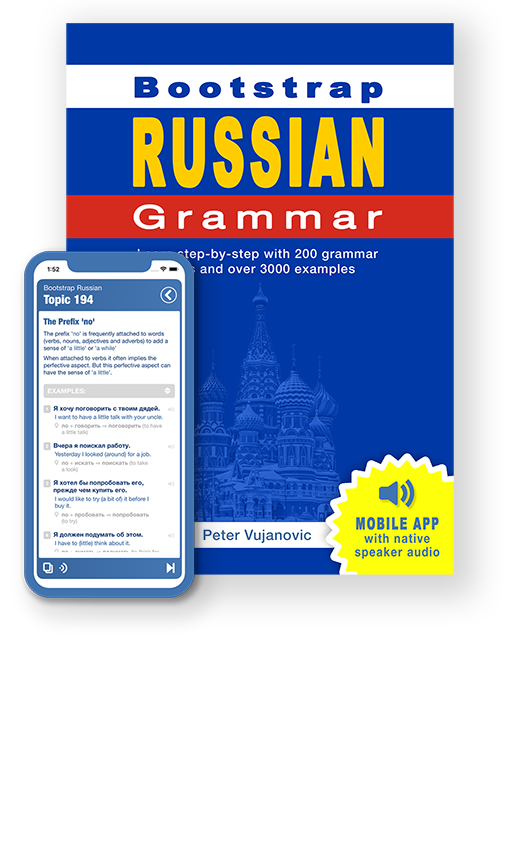Russian grammar - The Genitive Case and Ownership |
|||
|
|||
Here we introduce the Genitive Case which has many uses in Russian. One use of the Genitive Case is to indicate ownership or belonging - like 's in English. It answers the questions чей? (masc.), чья? (fem.), чьё? (neu.), чьи? (plural) meaning 'whose?'. The genitive conjugation of the singular is straight forward: • Masculine singular: consonant ending ⇒ add «-а»; ends with «-й» or «-ь» ⇒ replace with «-я» • Feminine singular: ends with «-а» ⇒ replace with «-ы»; ends with «-я» or «-ь» ⇒ replace with «-и» • Neuter singular: ends with «-о» ⇒ replace with «-а»; ends with «-е» ⇒ replace with «-я» |
| Examples: | |
|
Константин — брат Татьяны.
Constantine is Tatyana’s brother.
|
|
|
Чей это рюкзак?
Whose is that backpack?
|
|
|
Это рюкзак Олега.
It is Oleg's backpack.
|
|
|
Чья она дочь?
Whose daughter is she?
|
|
|
Она дочь Владимира.
She is Vladimir’s daughter.
|
|
|
Чьи вещи в этой сумке?
Whose things are in this bag?
|
|
|
Это вещи Тамары.
Those are Tamara's things.
|
|
|
Я отец Ольги.
I am Olga's father.
|
|
|
Он ученик учителя.
He is the teacher's student.
|
|
|
Он водитель машины.
He is the car's driver.
|
|
|
Хвост собаки длинный.
The dog's tail is long.
|
|
|
Велосипед мальчика не большой.
The boy's bicycle is not big.
|
|
|
Цвет платья странный.
The dress's colour is strange.
|
|
|
Крыша дома грязная.
The house's roof is dirty.
|
|
|
Крыша дома была чистая.
The house's roof was clean.
|
|
|
Это не была ручка учителя.
That was not the teacher's pen.
|
|
|
Это был шанс Виктора.
This was Victor's chance.
|
|
|
Это не ручка Олега, это моя ручка.
It is not Oleg's pen; it is my pen.
|
|
 |
|



